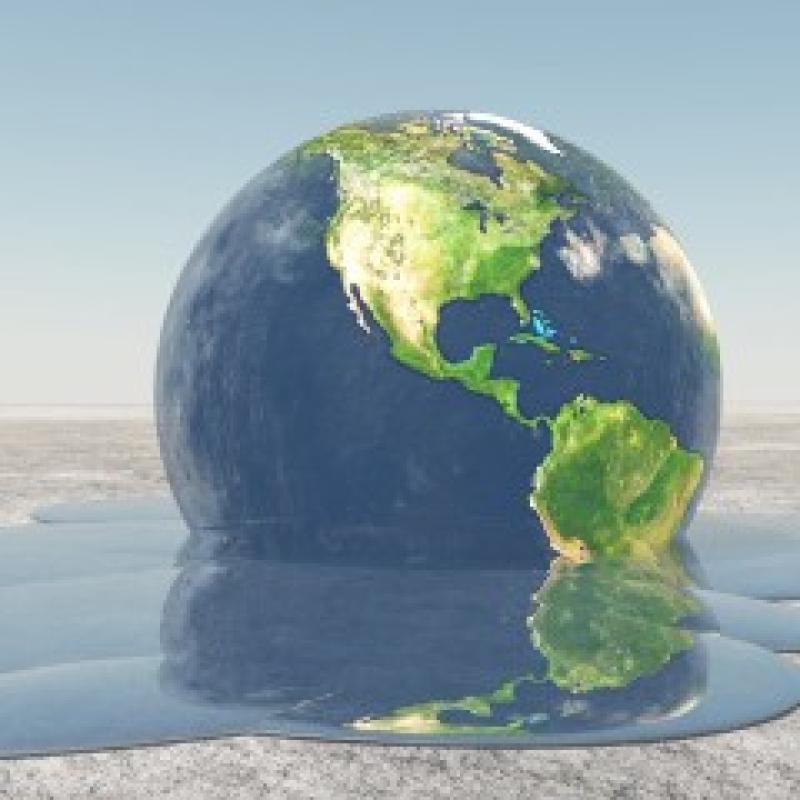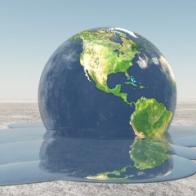New Climate Change Report Warns of Dire Consequences
 Waves hit a lighthouse in Newhaven, England, on February 15, amid record levels of flooding. More intense storms are an example of extreme weather brought on by climate change, experts say.
Waves hit a lighthouse in Newhaven, England, on February 15, amid record levels of flooding. More intense storms are an example of extreme weather brought on by climate change, experts say.
PHOTOGRAPH BY TOBY MELVILLE, REUTERS VIA CORBIS
The world is not ready for the impacts of climate change, including more extreme weather and the likelihood that populated parts of the planet could be rendered uninhabitable, says the planet's leading body of climate scientists in a major new UN report .
The 772 scientists who wrote and edited the report argue that world leaders have only a few years left to reduce carbon emissions enough to avoid catastrophic warming, which would produce significant sea level rise and large-scale shifts in temperatures that would dramatically disrupt human life and natural ecosystems.
"Observed impacts of climate change are widespread and consequential," according to the report, which is from the UN's Intergovernmental Panel on Climate Change (IPCC) and was released Monday morning in Yokohama, Japan.
The report uses stronger language around current impacts of climate change than past IPCC releases.
It warns that the impacts from changing climate are already happening, calling out "high risk levels" for spread of disease in Africa; property loss and mortality due to wildfires in North America; and decreased food production and food quality in South America. (See video: "Global Warming 101 .")
The report also warns of more dire consequences to come and says governments are ill-prepared for the effects.
It shows that "today's choices are going to significantly affect the risk that climate change will pose for the rest of the century," says Kelly Levin , a scientist who studies climate change impacts at the World Resources Institute in Washington, D.C.
Frances Beinecke , the president of the Natural Resources Defense Council, called the report an "S.O.S. to the world."
"Crossing a Threshold"
The new report, from a body known as the UN panel's Working Group II, warns that the world is close to missing a chance to limit the global warming that has occurred since the Industrial Revolution.
World leaders had previously agreed on a target of limiting warming to 2 degrees Celsius (3.6 degrees Fahrenheit).
Beyond that point, "impacts will begin to be unacceptably severe," the authors wrote. ( Quiz: What You Don't Know About Climate Science .)
"There is potential for crossing a threshold that leads to large system changes, and that's a very unknown world that has severe consequences," Levin says.
If the warming were to go beyond 6-to-7 degrees Fahrenheit (about four degrees Celsius), she says, as predicted by some climate models, "we would see extensive changes in agriculture."
Even at the lower end of predictions, the report warns: "Climate change will lead to increased frequency, intensity and/or duration of extreme weather events such as heavy rainfall, warm spells and heat events, drought, intense storm surges and associated sea-level rise."
Levin hopes the report will spur international leaders to negotiate more aggressive attempts to reduce greenhouse gas emissions. ( How does the greenhouse effect work? )
Full Article: http://news.nationalgeographic.com/news/2014/03/140331-ipcc-report-global-warming-climate-change-science/?rptregcta=reg_free_np&rptregcampaign=20131016_rw_membership_n1p_us_se_w




